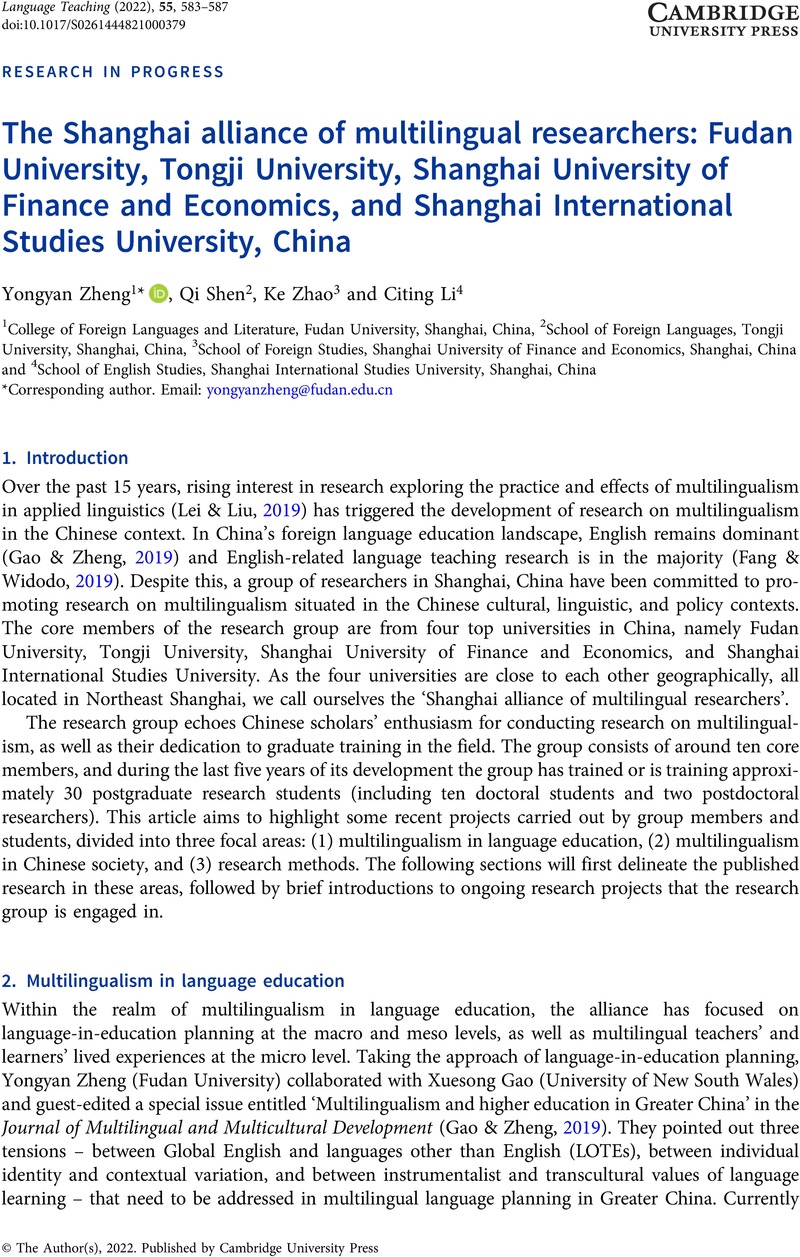Crossref Citations
This article has been cited by the following publications. This list is generated based on data provided by Crossref.
Wen, Zhisheng
Han, Lili
Hu, Guangwei
and
Teng, Mark Feng
2022.
Rethinking language policy and planning in the Greater Bay Area of China: insights from translanguaging theory.
Asian-Pacific Journal of Second and Foreign Language Education,
Vol. 7,
Issue. 1,






